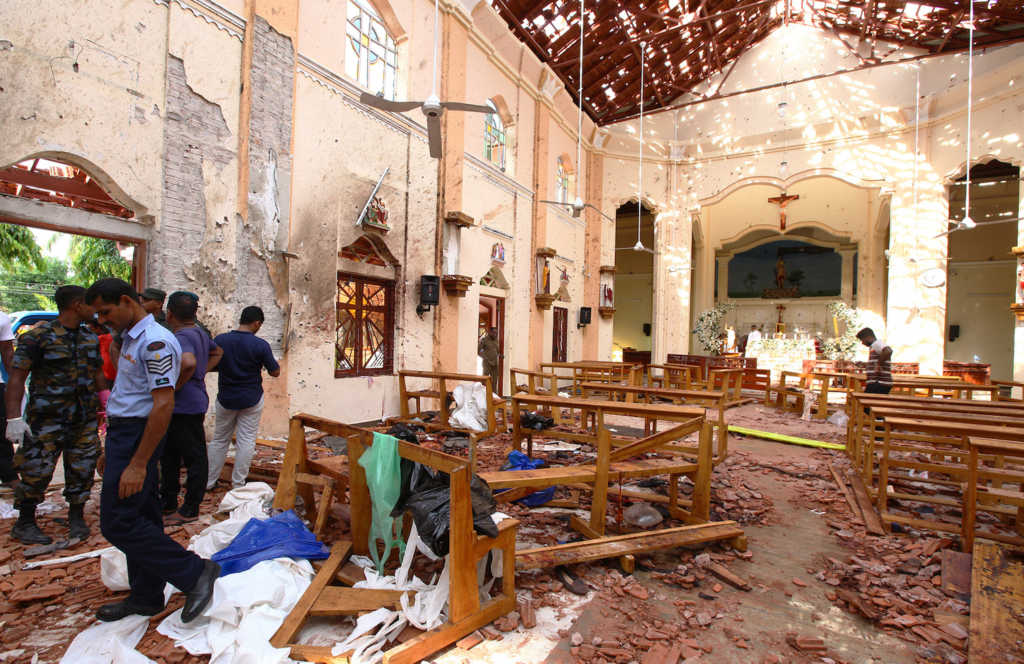Christians are — by the numbers — the most persecuted demographic around the globe. But if you only listen to those on the left, you might have quite a different and, unfortunately, naive impression.
That’s exactly what Intercept columnist Mehdi Hasan, who is Muslim, admitted Monday in a column published one day after a series of deadly bombs went off at churches and hotels in Sri Lanka on Easter Sunday, claiming the lives of nearly 300 people, a handful of whom were Americans.
Hasan wrote he’s “embarrassed to have to admit that in both Muslim and left circles, the issue of Christian persecution has been downplayed and even ignored for far too long.”
The writer referenced a quote from Guardian columnist Giles Fraser, who argued, in the context of Sunday’s terrorist attack, progressives seem to believe Christians “had it coming,” arguing many on the left associate Christianity with political conservatism.
“They associate Christianity with popes and their armies, with crusades and inquisitions, with anti-Semitism, British imperialism, Trump supporters and abortion protesters,” Fraser explained.
What do the numbers say?
According to data from the Pew Research Center, which Hasan referenced in his column, Christians are the No. 1 target of persecution internationally. They face persecution in 144 countries followed by Muslims in 142. The Christian nonprofit watchdog Open Doors has a running list of the top 50 countries in which Christians experience “high levels of persecution.”
My colleague Will Maule has compiled a list of deadly attacks on Christians, all but one of which happened in the first four months of 2019. Yet if you reach back in your recent memory, it’s unlikely you’ll remember these bloody assaults, because rarely do they garner the kind of attention from the mainstream media they undoubtedly deserve.
What Hasan admitted bothers him most about the data is the fact that, with the exception of North Korea (No. 1) and India (No. 10), seven of the top 10 countries where Christians endure “extreme persecution” are Muslim-majority countries, according to Open Doors’ World Watch List.
“Islamic extremism remains the global, dominant driver of persecution, responsible for initiating oppression and conflict in 35 of the 50 countries on the list,” Open Doors said in a statement last year to Christianity Today.
Is there a double standard?
This isn’t a dismissal of the incredible inter-religious violence peaceful Muslims around the world face every single day at the hands of radical Islamists. To ignore that would not only be inappropriate, it would also be flat-out ignorant: Muslims are the second most persecuted religious demographic in the world, following very closely behind Christians.
It is, though, noteworthy that despite the nearly unparalleled amount of persecution Christians endure, many of our elected officials, particularly those on the left, don’t seem to muster up for Christ followers the same level of passion they do when our Muslim neighbors face unspeakable and heartbreaking violence.
I’m not suggesting there’s a lack of care from my progressive friends; I think most care deeply about attacks against other human beings, regardless of religious affiliation. I also think Hasan is right to claim Christian persecution has, for whatever reason, even perhaps unintentionally, been “downplayed” by some on the left.
It is perhaps for political reasons (Muslims are an obvious minority in the U.S.) that “Islamophobia” is part of our every day vernacular yet I’d hardly consider “Christophobia” a part of the American lexicon. Whenever any major attacks are unleashed on our Muslim neighbors, we rightly hear condemnations of the incidents followed soon by lectures about Islamophobia in America. I can hardly remember a lecture similarly pointing out the equally real Christophobia.
As Will pointed out, it is refreshing to finally see reporting about the ongoing persecution of Christians around the globe. I can only hope that in the days, weeks, and months to follow, we won’t soon forget the price so many have paid for the faith we freely boast here in the U.S.



